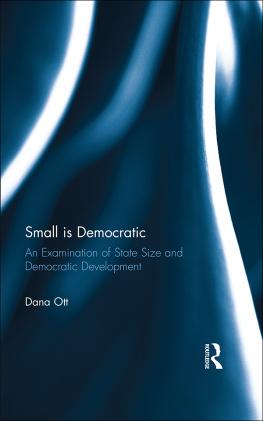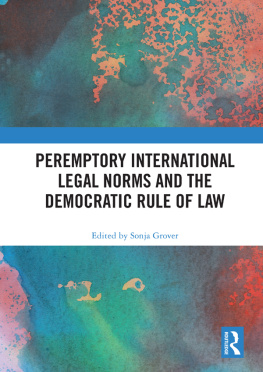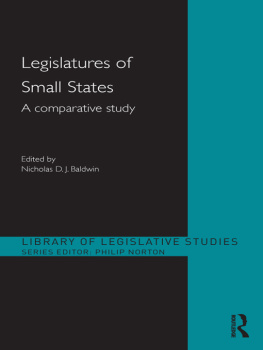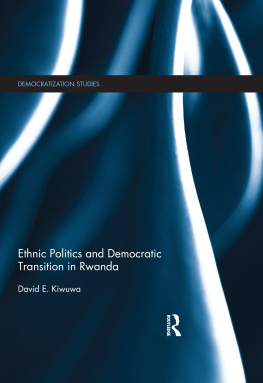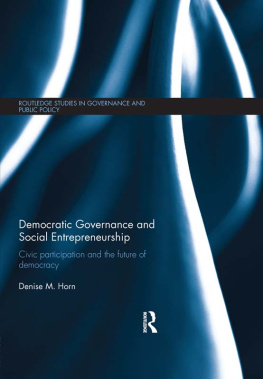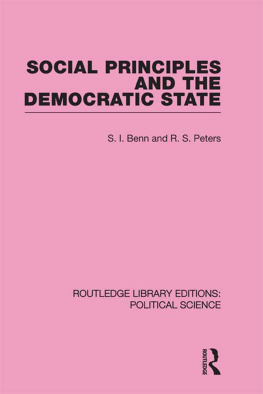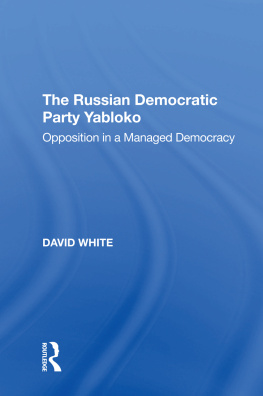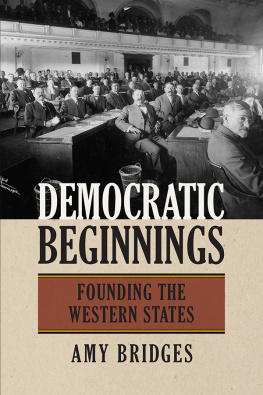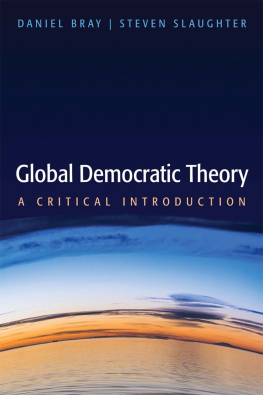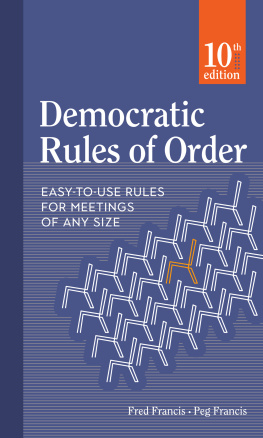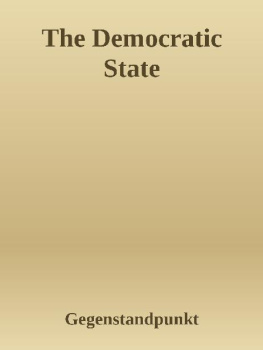Published in 2000 by
Garland Publishing, Inc.
A member of the Taylor & Francis Group
29 West 35th Street
New York, NY 10001
Garland is a member of the Taylor & Francis Group
Copyright 2000 by Dana Ott
All rights reserved. No part of this book may be reprinted or reproduced or utilized in any form or by any electronic, mechanical, or other means, now known or hereafter invented, including photocopying and recording, or in any information storage or retrieval system, without written permission from the publishers.
10 9 8 7 6 5 4 3 2 1
Library of Congress Cataloging-in-Publication Data
Ott, Dana, 1967-
Small is democratic : an examination of state size and democratic development / Dana Ott.
p. cm. (Comparative studies of democratization)
Includes bibliographical references and index.
ISBN 0-8153-3910-0 (alk. paper)
1. States, Small. 2. States, Size of. 3. Democracy. I. Title. II. Series.
JC365. 077 2000
321.06dc21
00-021539
Printed on acid-free, 250 year-life paper
Manufactured in the United States of America
This book is a rare find, if I may be so immodest as to say so myself. (I supervised the PhD dissertation on which this book is based.) The book is a rare find because its author, Dana Ott, takes seriously an entire category of sovereign nation-states that most analysts have traditionally simply ignored. And she does this employing a truly comparative approach that is often quantitative in nature. In the end, Ott succeeds in summarizing precisely and then expanding what is known, in a social science sense, about the units subsumed within this category: namely, small states. These are states which, though small, constitute about half the number of all sovereign states in the world today.
States can, of course, be small, relative to states in general, in a number of different ways. A state can be small in terms of its population, territory, GNP, national power, or indeed virtually any other of the common attributes of state-hood that can be quantified and are thus subject to ordinal rankings. In fact, many of these characteristics of smallness tend to cluster together, although this is not to say there are no states that are large in territory, but small in population, or states small in population, but relatively rich in natural resources. But in practice, though Ott defines small states to be those having populations numbering below five million persons, in fact she is usually analyzing states that are small in territorial population and also in their overall base of material resources - in short, then, politically weak states.
Indeed, it is because of the typical very weakness of small states that political scientists have tended to ignore them. (There are of course exceptions, but where authors have been interested in small states, it has usually been in roles and behaviors of those states in international relations; their domestic politics has been manifestly less well studied.) Political science, after all, has traditionally been interested in how power - i.e., political power - has been gathered, expanded and exercised in various contexts, not how it has failed to be gathered, expanded or exercised. Thus the usual predilection of analysts for studying power has served to consign to relative scholarly oblivion close to half the membership of the United Nations, as Ott shows, whose populations do not individually reach her plateau of five million persons.
But there is more to this oversight than the simple preference of political analysts for studying the exercise of real power. There is also among many of these same individuals a normative objection to even the existence of small states - and certainly to an increase in their numbers - on the grounds that because they are relatively powerless, the status of small states as allegedly sovereign entities is dangerous to world order. In this view, it would be better not only for the populations of these states, but for humanity in general, if these states didnt exist at all, or at least if most of them were to disappear. An exception to this normative bias are usually made for small island states, where the practical alternative to sovereignty can only be some form of on-going colonial relationship, as in Bermuda, a relationship which in the late 20th century is usually seen as even more repugnant to observers than adding further to the number of sovereign mini-states, as the smallest of these are often pejoratively referred to.
The supposition, then, is that the populations of most small states might be better off affiliating with a larger, more powerful neighbor; and that failing this, these populations are likely to fall to fall victim to incapable government at home and to adverse economic and political influences arising from outside. Governmental incapacity in small states in turn is calculated to be the likely result of limited resources, both material and human, absences of economies of scale, and a political process that is unbalanced in the sense of lacking the political stability that an equilibrium of many countervailing political forces provides. Great-man personalistic rule, which is a frequent characteristic of political leadership in small states, is usually seen as one consequence of such unbalance, and indeed an unfortunate likely consequence of smallness.
The significance of Otts work, then, is its striking and thoughtful challenge to this conventional wisdom concerning the authoritarian and undemocratic potentialities of small states. Drawing evidence from her secondary analysis of recent global surveys of all states, as well as case studies of two small states (Gambia in West Africa and Trinidad and Tobago in the Eastern Caribbean) that she herself prepared in 1993 and 1994, after traveling to both, Ott affirms her central hypothesis that state size does impact [positively] the formation and maintenance of democracy in small states, and that this is particularly true for small island countries. The reasons for this impact lie, Ott concludes, in the social systems typical of small states, social systems that mitigate political conflict, encourage elite cooperation and increase the stake of citizens in the regime. Whether or not small is beautiful, as Ott seems to want to argue in


